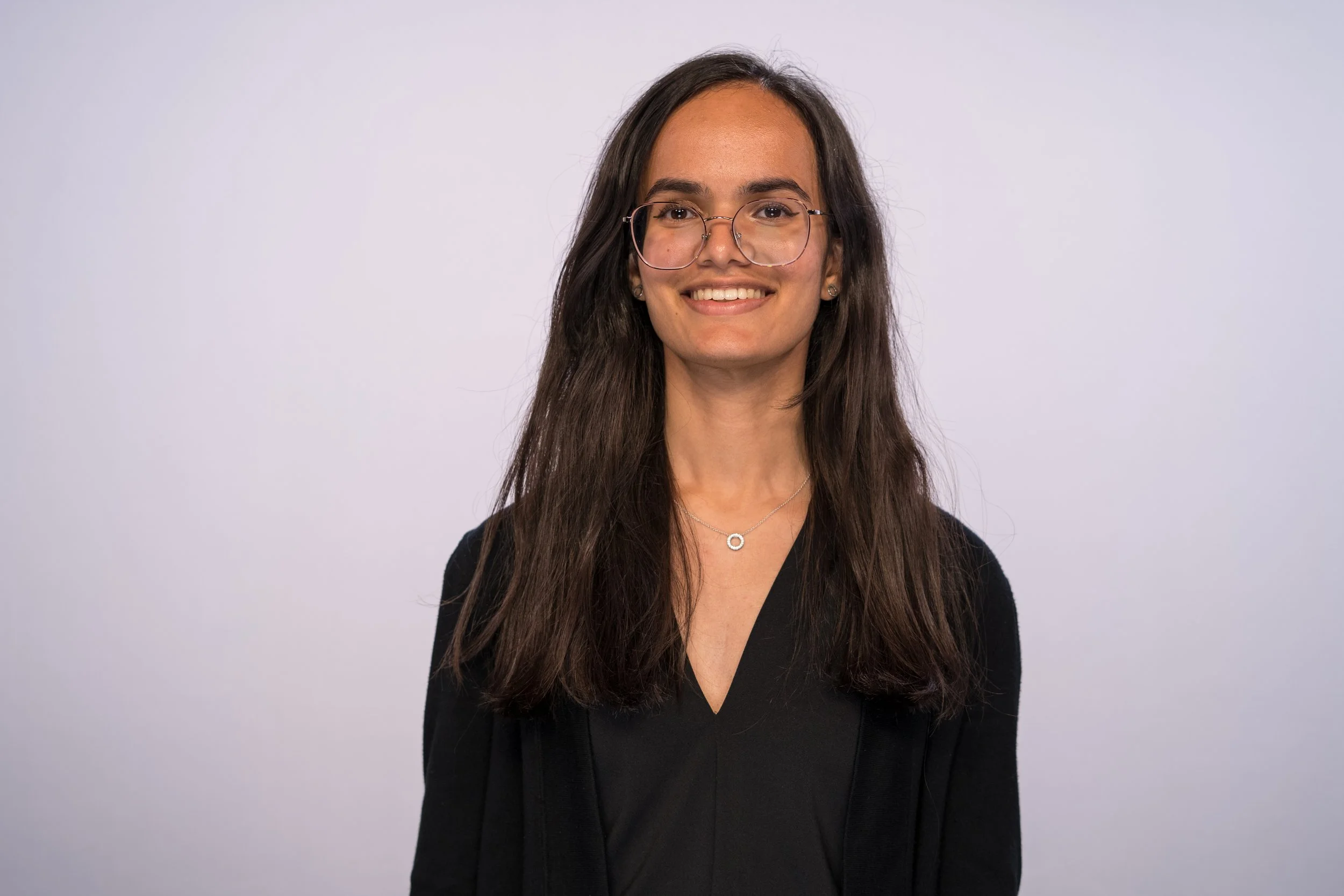With our 2026 mentoring scheme now open for applications, we hear from our deputy head of mentoring, Parie Desai. Parie is one of WiJ Scotland’s 2025 mentees and she’s gained so much from the experience, she decided to get involved with organising the programme for future mentees. You can find Parie’s LinkedIn profile here.
Who is your 2025 mentor?
I am lucky to have two part-time mentors: Jen Stout – a freelance journalist specialising in foreign correspondence – and Joyce McMillan – a columnist and theatre critic for The Scotsman.
Tell us what made you apply to be a mentee on the programme this time last year?
I was halfway through my final year at university and I was not just determined to figure out my plans post-university, but also how to take advantage of my final semester as a student journalist. I needed some guidance with navigating job applications and understanding the fundamentals of the industry, which can be really daunting at first. I also wanted to learn more about reporting abroad as I aspire to be a foreign correspondent, but at the same time, I wanted to improve how I write features pieces – I got the best of both worlds by being paired with both Jen and Joyce!
Now that the mentoring year is almost at an end, can you look back and see how the mentoring support has made a difference?
Having a mentor has helped me both on a professional and a personal level: any questions I have had, no matter how small, I've been able to chat with my mentors for advice. Transitioning from being a student to a working professional is not an easy process, but it has been made easier thanks to my mentors. The programme, more generally, has broadened my network too: the women I have met through WiJ Scotland inspire me to work hard to fulfill my professional aspirations. This year has been so great that it has inspired me to give back to this wonderful community, where I have recently taken up the role as deputy head of mentoring on the WiJ Scotland committee.
Finally, what would your advice be to anyone thinking of applying to be part of the 2026 mentoring programme?
Go for it! Don't worry about where you are in your career or which part of journalism you work in – the chances are that there will be someone out there that you can be paired with. If you take full advantage of the mentoring programme, it can really transform your career!
Are you an early to mid-career journalist in Scotland looking to develop your practice?
Do you have specific goals you want to reach or challenges you’d like to overcome?
Women in Journalism Scotland can help.
Women in Journalism Scotland has launched the sixth round of its successful mentoring scheme, with mentoring to take place in 2026.
Our mentoring scheme has supported more than 100 women journalists of all ages and backgrounds to date, from beats as diverse as politics and investigations to travel, food and drink, arts, health, sport, local news, digital, data, opinion and tech.
Our mentors have helped their mentees bag bylines in publications such as The New York Times and The Guardian, as well as build contacts and grow in confidence.
The 2026 programme will draw on the knowledge and experience of a pool of experienced women journalist mentors. Successful applicants will be paired with a journalist mentor based on their specialism / goals.
Mentees will receive:
Twelve career development sessions
An introductory online workshop guiding them through what to expect from the mentoring year
A mentoring meet-up at BBC Scotland HQ with wine and snacks, where they will get to know other mentees and mentors and network with BBC Scotland journalists
Invitations to events hosted throughout the year by Women in Journalism Scotland
Catriona Forrest, Head of Mentoring at Women in Journalism Scotland, said: “This scheme provides a rich experience for both sides of the mentoring scheme - it is a rare opportunity for up-and-coming women journalists to have their professional development supported by experienced, expert journalists. These relationships have led to great things and can be tailored to suit the participants.
”So when you apply, think carefully about what you would like to gain from being mentored, what you would like to have help to improve or change.”
Parie Desai is Deputy Head of Mentoring, and she took place in the scheme as a mentee in 2025. She said: ”The opportunity to be a mentee on this year's mentoring scheme has been truly life-changing: I have seen my confidence grow, both on a personal and professional level, thanks to the help and support of my mentors. This is exactly what I needed as a student journalist who was navigating her next steps post-university. Now having started an internship within the industry, I continue to be supported and guided. I could not recommend the scheme enough.”
How to apply
To apply to have your media career shaped by this opportunity, fill in the below application form by December 15 2026.
Application form https://forms.gle/KCKt6HDvZmQUePWbA
This year we are also asking applicants to submit a short plan detailing what they would like to achieve with a mentor, including two goals.
FAQ
Who can apply?
Early and mid-career women journalists working in Scotland will be chosen to take part in a year-long programme, which will include an hour a month of their mentor’s time, most likely on Zoom.
WiJ Scotland defines an early to mid-career journalist as someone who feels they still have space to grow in their career and has specific goals they feel a mentor could help with. We would particularly urge journalists who have lost confidence or career direction to apply.
Boosting the number of women of colour journalists and women sports journalists in Scotland is one of our goals. Therefore, while the mentoring scheme is not generally open to student journalists, it is open to women of colour student journalists and students who want to be sports journalists.
Applicants must be a member of Women in Journalism Scotland. If you are not yet a member of Women in Journalism Scotland, join here.
What successful applicants will receive
A year’s mentoring with an established women journalist with sessions conducted either in person or on Zoom
An invite to an introductory mentoring workshop and an in-person mentoring social at BBC Scotland’s HQ
The chance to connect with other mentees on the scheme
Career development, opportunities and guidance from Women in Journalism Scotland
Why mentoring?
We believe mentoring has the ability to change the future of journalism. That future features a more confident, diverse workforce, a greater prevalence of women’s voices and more women in senior positions.
How is the mentoring scheme judged?
Applicants will be selected by a panel led by the WiJ Scotland committee.
The panel will study all the answers to the questions posed in each application and base its final decision on the journalists proving how much they would benefit from the programme. An additional factor will be which applicant best fits the skills and experience of the mentors.
When will I hear back?
We aim to contact all applicants by late December. Unsuccessful applicants will be provided with feedback.
Women in Journalism Scotland is looking for a new head of mentoring to oversee our established mentoring scheme. Now in its sixth year, the scheme pairs up-and-coming women journalists with a mentor from a pool of around 60 writers, reporters, broadcasters, producers, presenters and more. We seek an enthusiastic, motivated and nurturing individual committed to shaping the careers of women journalists in Scotland.
Responsibilities
Opening the scheme in November and making mentor / mentee pairings (with support from the WiJS committee) in December
Hosting a one-hour introduction to mentoring workshop in January
Organising and hosting an in-person mentoring meet-up at BBC Scotland Pacific Quay in May
Being the go-to contact for mentors and mentees who may need additional guidance throughout the year
This is a voluntary position supported by the WiJS committee. A full handover will be done with the outgoing head of mentoring, who will also be on hand for advice throughout the year.
The role would suit someone who has benefitted from informal / formal mentoring themselves in their career and who now wishes to pay forward that support.
Please register your interest to wijscotland@gmail.com by 30 Sept 2025
Clockwise, from top left: Emma Newlands, Erin Rizzato Devlin, Devon McCole, Amanda Crawford and Claire Prentice
Women in Journalism Scotland (WiJS) and the Joseph Rowntree Foundation have announced the recipients of the 2025 WiJS x JRF bursary programme.
Five women journalists have been chosen by a panel of judges to receive £1,500 to develop a project shining a light on economic and / or social inequalities around Scotland.
The funding will support the successful applicants over the remainder of 2025 as they work up their projects from an idea stage to a developed pitch ready to be taken to a publication, or launched independently, by the end of the year.
The successful journalists are: Amanda Crawford, Claire Prentice, Devon McCole, Emma Newlands and Erin Rizzato Devlin.
Amanda intends to investigate a medical issue in Scotland, building on a recent story she exclusively broke for print in which a 17-year-old girl died waiting for appointments.
Claire will explore the growing social phenomenon of hikikomori - extreme social isolation and withdrawal among adolescents and young adults and look at the innovative treatment programmes being devised to help extremely withdrawn individuals and their families.
Devon will reflect on social deprivation in Castlemilk, tracing how a Glasgow scheme with a radical past has only become increasingly marginalised.
Emma is focusing on costly bank charges, and examining how lenders are getting away with the legitimised highway robbery of vulnerable customers.
Erin will investigate the relationship between global, national and local dimensions of renewable energy in Scotland.
Part of the bursary programme involves working with an established woman journalist who will provide support for each applicant’s project.
Providing mentoring for the programme this year will be Catriona MacPhee, Halina Rifai, Anna Burnside, Erikka Askeland and Karin Goodwin.
This opportunity was aimed at early to mid-career freelance women journalists who believe they still have room to grow in their careers. Applicants must also have experienced economic inequality at some stage in their lives.
Anna Burnside, co-chair of Women in Journalism Scotland, said: “We are so excited to support this amazing range of women as they pursue original, in depth journalism. I can’t wait to see what they all produce.”
Chris Birt, director at the JRF, said: “Once again this bursary is allowing women journalists to shine a light on the inequities and hardships that so many people face in Scotland today. In a rapidly changing world, journalism is crucial to bring people's stories, struggles and campaigns to life and I'm sure this year's successful journalists will do that brilliantly."
Pictured L-R are WIJ Scotland co-chair Anna Burnside, Catriona Stewart and chair of judges Richard Neville at the Scottish Press Awards. Credit: Jeff Holmes.
Congratulations to all WiJ Scotland members who were shortlisted in the 46th Scottish Press Awards.
We were thrilled to see WiJS mentors taking home some awards: Dani Garavelli (Interviewer of the Year and Columnist of the Year) and Chitra Ramaswamy (Food and Drink Writer of the Year).
Melanie Reid, previously of The Times Scotland, was presented with the prestigious Lifetime Achievement Award.
Other winners and runners-up included: Sian Maher; Susan Egelstaff; Rachael Revesz; Jane Barlow; Caroline Wilson; Helen McArdle and Ailsa Sheldon.
WiJ Scotland sponsored the Nicola Barry Award category, which was open to all women journalists working in print and online media in Scotland.
The award honours the memory of Nicola Barry, one of Scotland’s most respected journalists, who passed away in 2017. It recognises women journalists for their work in issue-led reportage or commentary.
The panel was impressed with the quality of this year’s entries – thanks to Anna Burnside, Cat MacPhee, Jean West and Jan Patience for judging.
The award went to freelance writer and broadcaster Catriona Stewart, with Lindsay Bruce of the Press and Journal named as runner-up.
The panel said that Lindsay’s work had Nicola Barry written all over it, discovering how the Raac crisis was affecting people in communities around the north-east. The judges loved the huge effort she made to humanise a building materials story.
Winner, Catriona Stewart, produced outstanding and tenacious journalism over an extended period to tell the story of a prolific abuser preying on vulnerable women in Scotland and beyond. She won the trust of his victims and gave them a voice. Her work led directly to a conviction and a 12 year jail sentence, preventing countless other women being targeted.
View the full list of winners here.
****UPDATE: DEADLINE NOW EXTENDED UNTIL FRIDAY 20TH JUNE 2025***
Women in Journalism Scotland and the Joseph Rowntree Foundation have launched the third year of their WiJS x JRF bursary programme.
Five women journalists will each be awarded £1,500 to develop a project shining a light on economic and / or social inequalities around Scotland.
The project should be solutions-driven. More information on the types of projects considered can be found below.
The funding will be spent on working up a project from idea stage to a developed pitch ready to be taken to a publication (newspaper / broadcaster / online resource etc) or launched independently.
Part of the bursary programme involves working with an established woman journalist who will support successful applicants. This could be by helping to develop news lines, devising a list of target publications and advising on research techniques.
The funding will support successful applicants over a three month period in 2025. We expect all projects to be pitched to editors by October.
Heather Dewar, co-chair of Women in Journalism Scotland, said: “This bursary scheme provides an invaluable level of support to women journalists who often struggle with the financial pressures of long-term projects.
“The funding allows them to work at a pace which aligns with their desired goals and other life commitments and gives them the space to investigate their subject matter in a thorough, concise manner.
“We know from past experience how beneficial this support has been for our journalists, and we hope to see that continuing in the future, as the bursary scheme progresses.”
Chris Birt, associate director for Scotland for the Joseph Rowntree Foundation, said: "The bursary continues to go from strength to strength and it will be exciting to see what stories emerge from it this year. The importance of good journalism to fight the many injustices of the world is clear and I hope this year's bursary can continue to support women journalists to do so."
PROJECTS CONSIDERED
We expect proposed projects to be reasonably developed with some initial research already undertaken. We welcome ideas for:
Investigations
Features
Documentaries
Radio productions
Podcasts
Travel writing
Interviews
Non-fiction book proposals
WHAT YOU GET
£1,500 to develop a journalism project to pitch stage
A journalist mentor to help each project reach its potential
Two check-in meetings with Women in Journalism Scotland to provide extra guidance
Support from experts at the Joseph Rowntree Foundation if required
WHO IS ELIGIBLE TO APPLY?
This opportunity is suited to early to mid-career freelance women journalists. Applicants should have a number of bylines under their belt and be confident of being able to get their project published. We define mid-career journalists as anyone who still believes they have room to grow in their career. For 2025 we will also consider applications from students in full-time education who can demonstrate the motivation and commitment involved in completing a long-term project.
Women journalists in staff jobs can also apply but there must be no contractual barrier to you pitching your project to a wide range of publications (a supporting statement from your employer may be required).
Applicants must have experienced economic inequality at some stage in their lives. This includes, but is not limited to:
In childhood:
A family member in receipt of benefits
Family members employed in low-paid work
Family members who were unable to work due to disability or long-term illness (whether physical or mental ill-health)
Having experience of the care system
In adulthood:
Receiving Universal Credit or another equivalent means-tested benefit
Experiencing housing or food insecurity
Experiencing economic and/or social inequalities during their child’s early years and/or after returning to work from maternity or adoption leave
Experiencing financial hardship while suffering discrimination in whatever setting (whether work, education or provision of services), including due to race.
Experiencing financial hardship while in a caring role
Experiencing financial hardship while recovering from illness, chronic health condition, or being disabled.
If you’d like to apply but are unsure whether you’re eligible, please email wijscotland@gmail.com for advice.
WHAT CAN THE £1,500 BE SPENT ON?
The funding will most likely be used as a wage to live from while researching your project. However, it can also be spent on travelling expenses or accessing archive material, for example.
The bursary will be delivered in two instalments throughout 2025.
WHEN IS THE DEADLINE?
Applications should be submitted by midnight on Friday 20th June.
HOW TO APPLY
Applications should include three elements.
1. A one-page journalism CV (pdf)
2. A one-page pitch outlining and selling the project (pdf). This must include:
What the project is and what research you have done so far
How you will approach your project
How long your project will take to complete
What is your project’s hook/news line
What publications you’ll pitch to
Why the project is vital, and why now
Why you are eligible
3. If you are submitting a broadcast/radio/podcast proposal, please send a one minute video of yourself selling your project.
Terms and conditions
Entrants must be a member of Women in Journalism Scotland
Applications should be emailed to wijscotland@gmail.com. Please also include your name, address, email address and telephone number in the body of the email.
Recipients will sign a conditions of grant document.
Thanks to everyone who joined us for our recent Edinburgh social.
We had a fabulous evening at the Scottish Malt Whisky Society in Queen Street, where attendees enjoyed excellent food and drink, a fun icebreaker game and some networking - you can see pictures from the event below.
Keep your eyes peeled for more Edinburgh events in 2025.
If you're not a Women in Journalism Scotland member yet – or know someone who'd benefit from joining – you can sign up here.
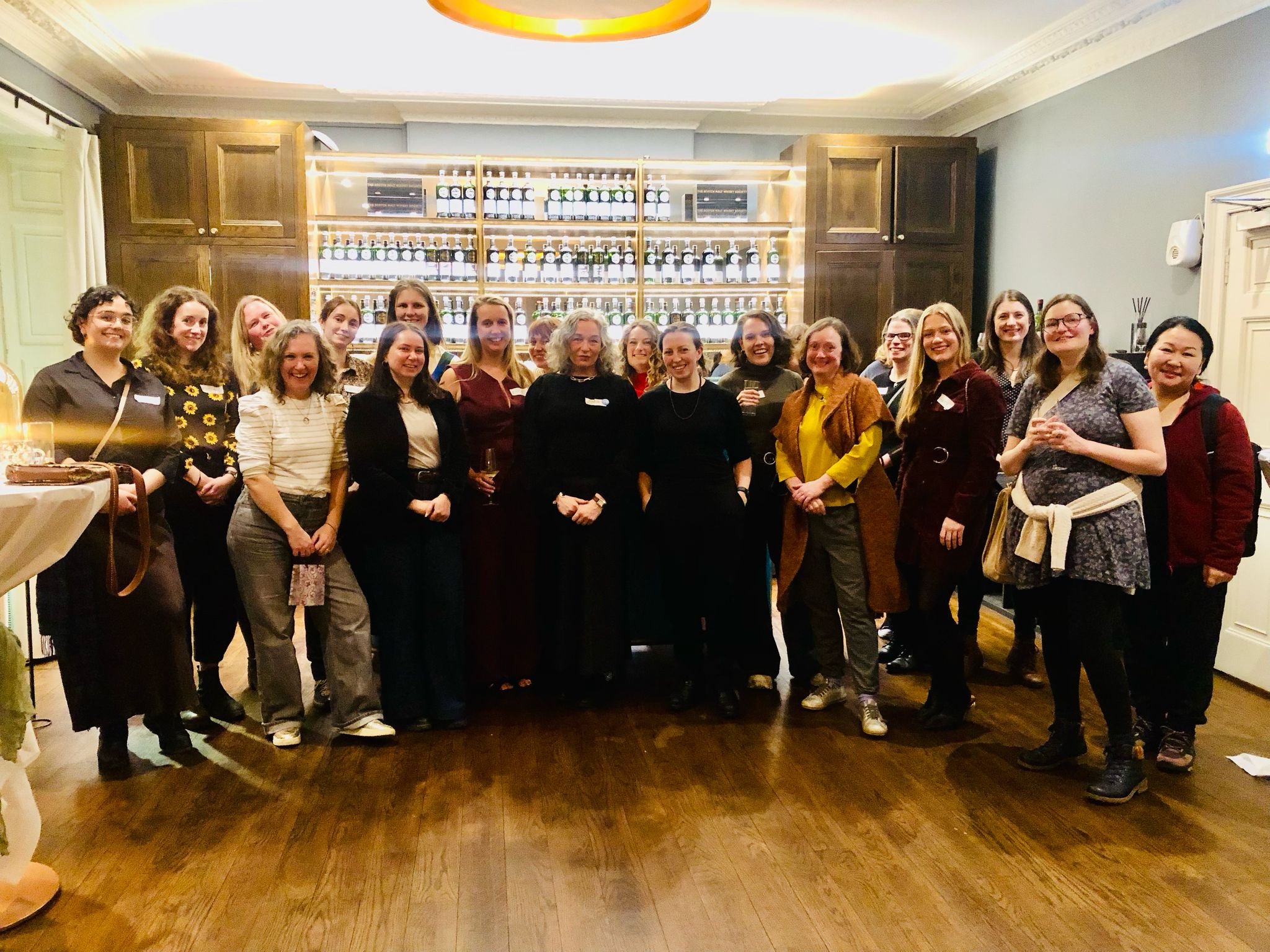
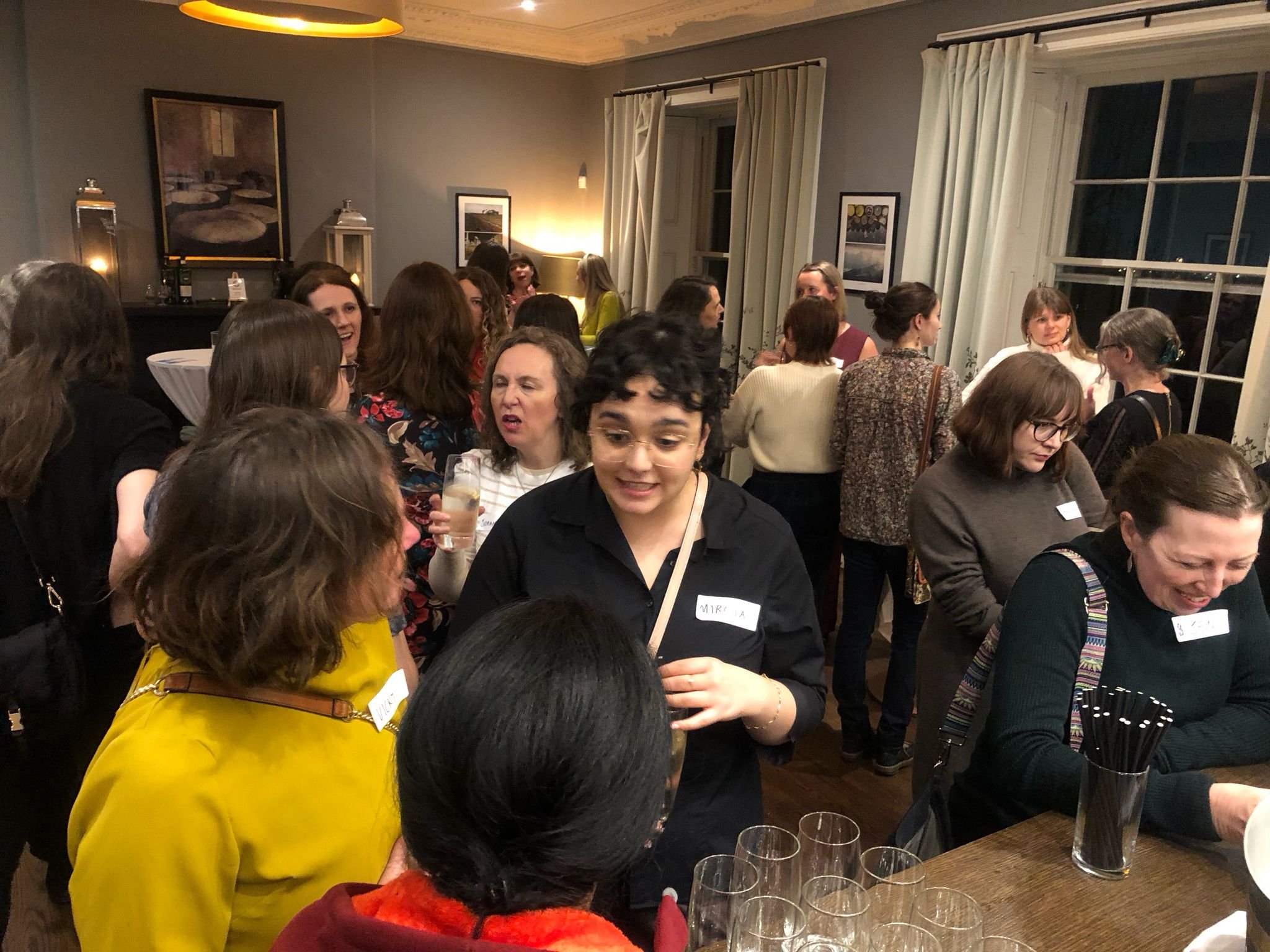
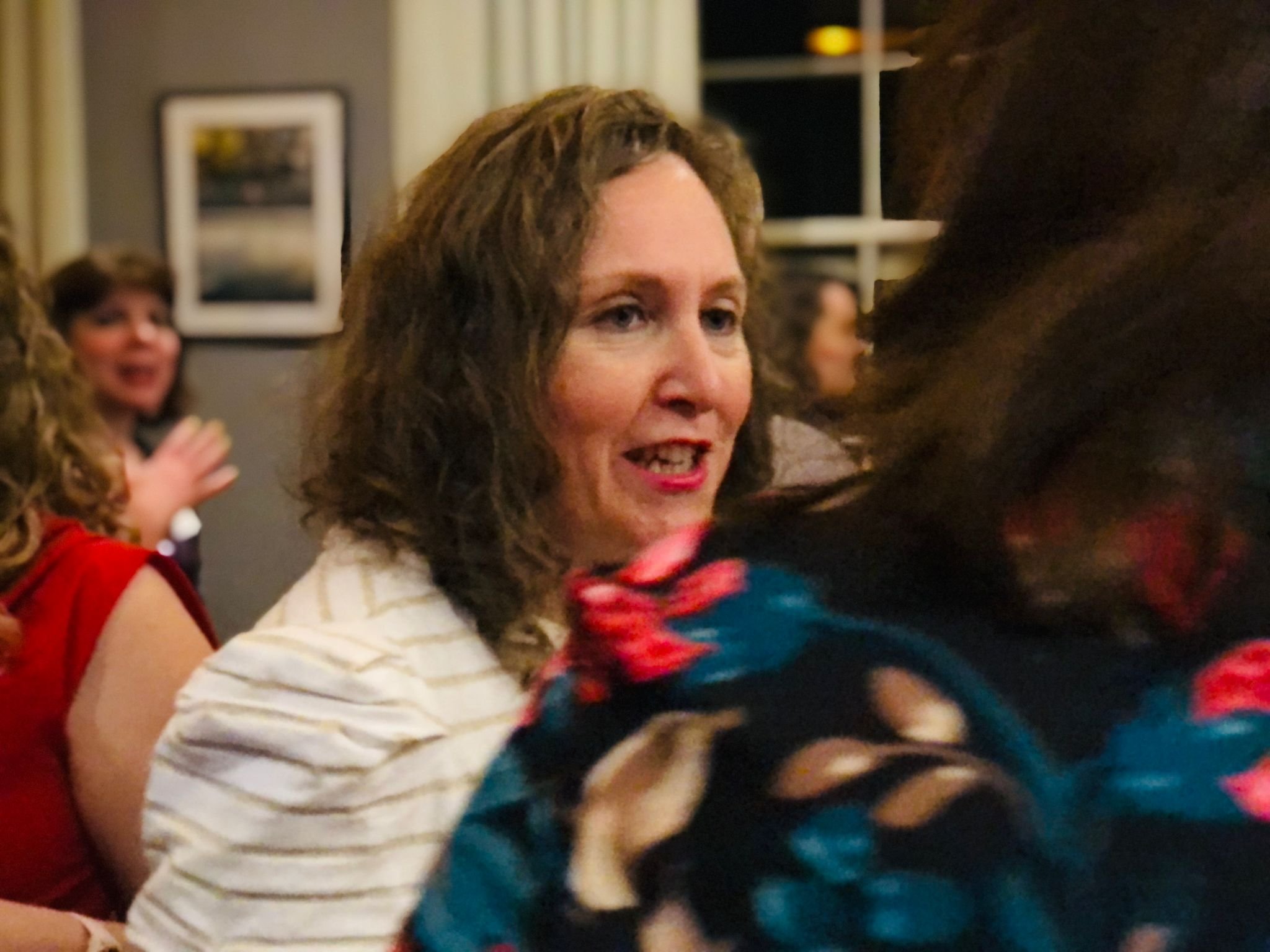
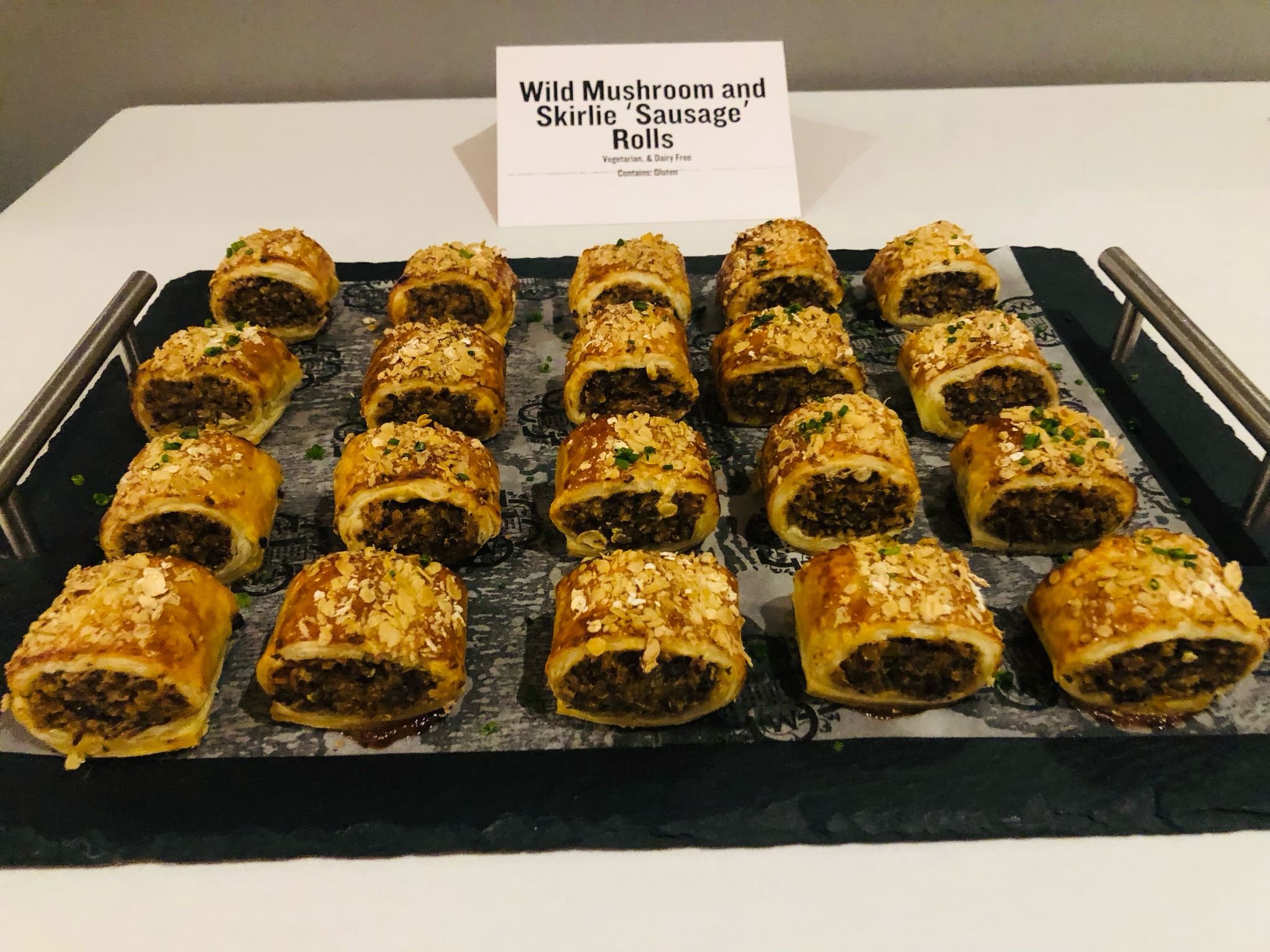
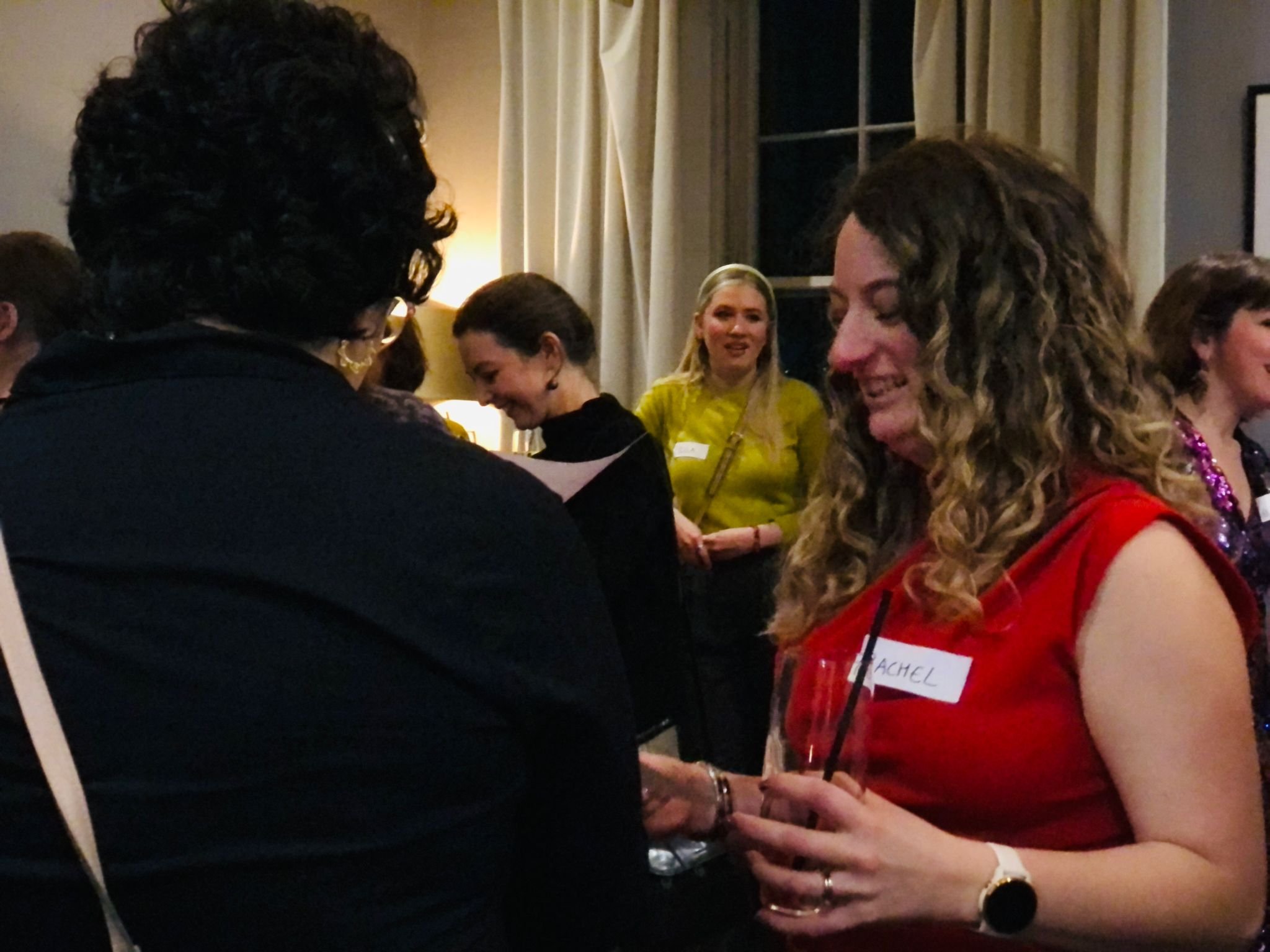

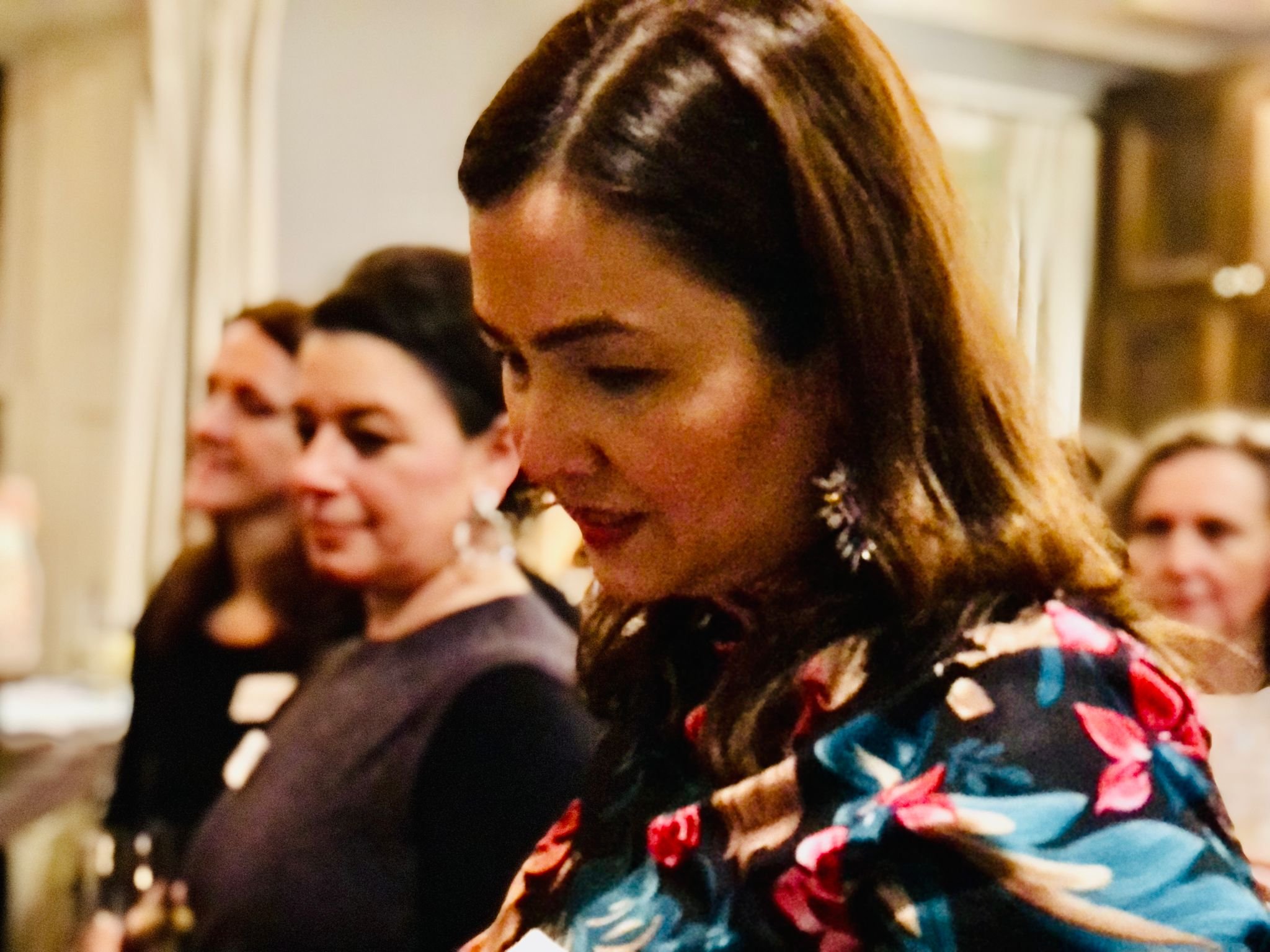
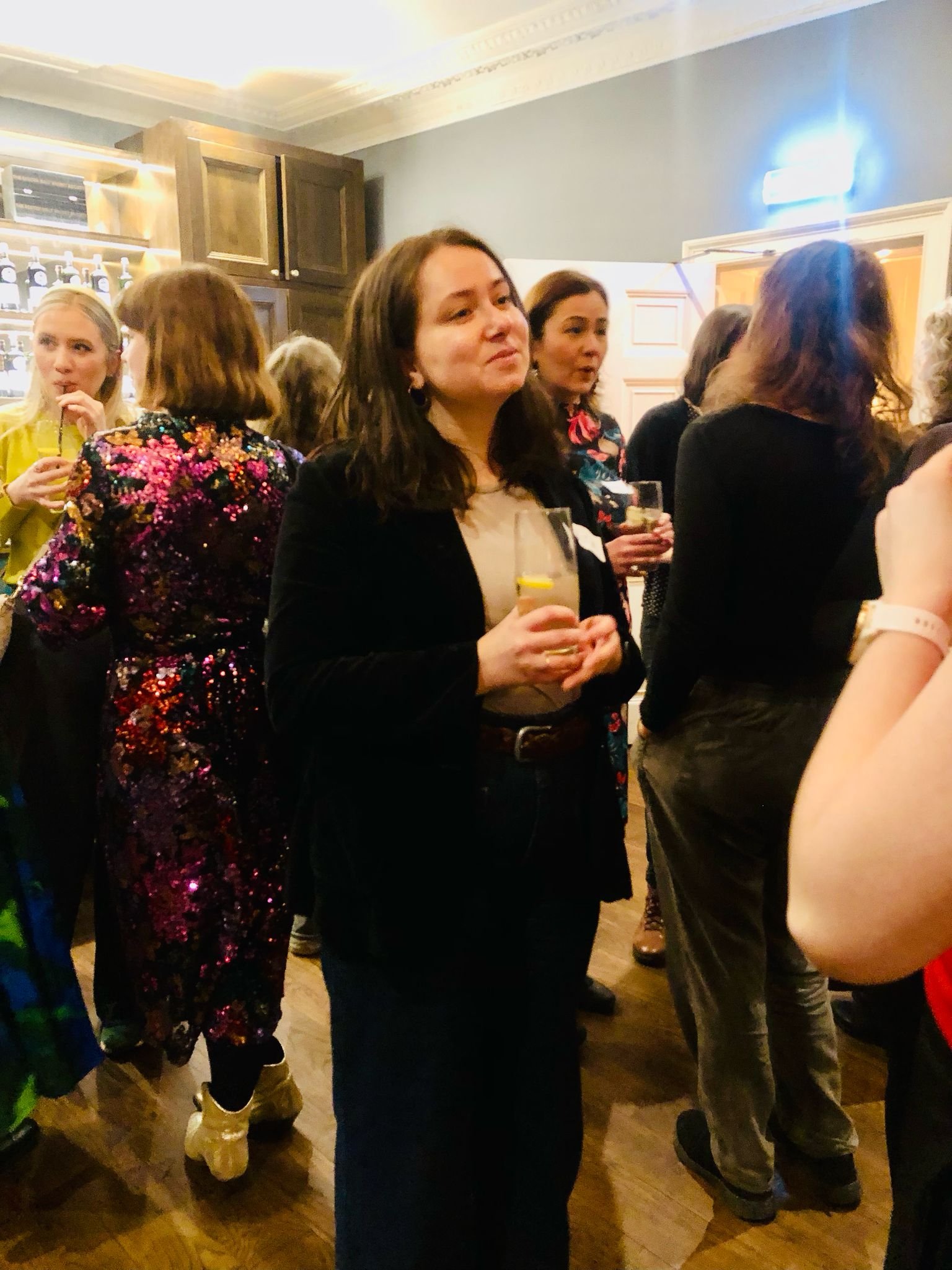
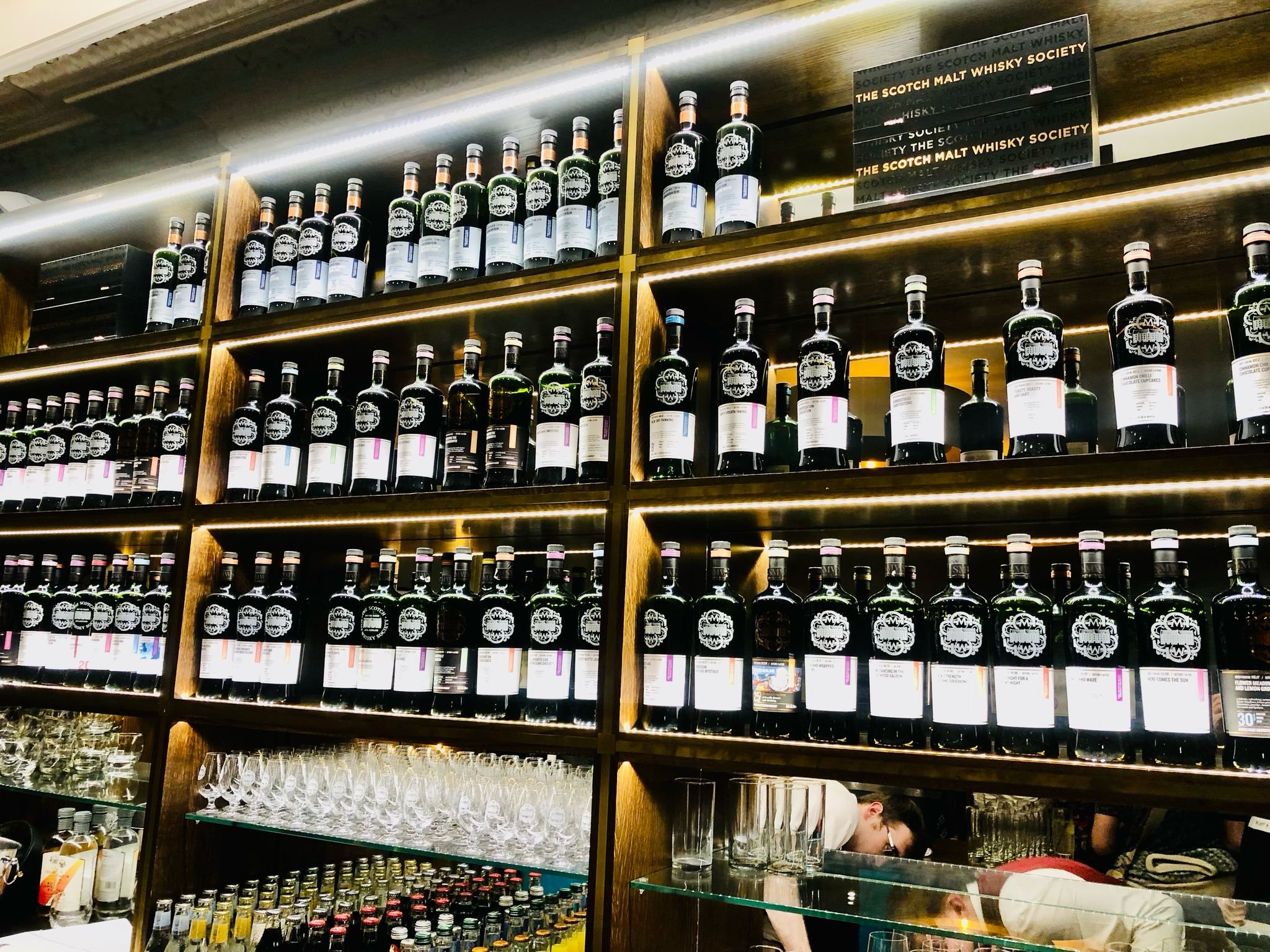
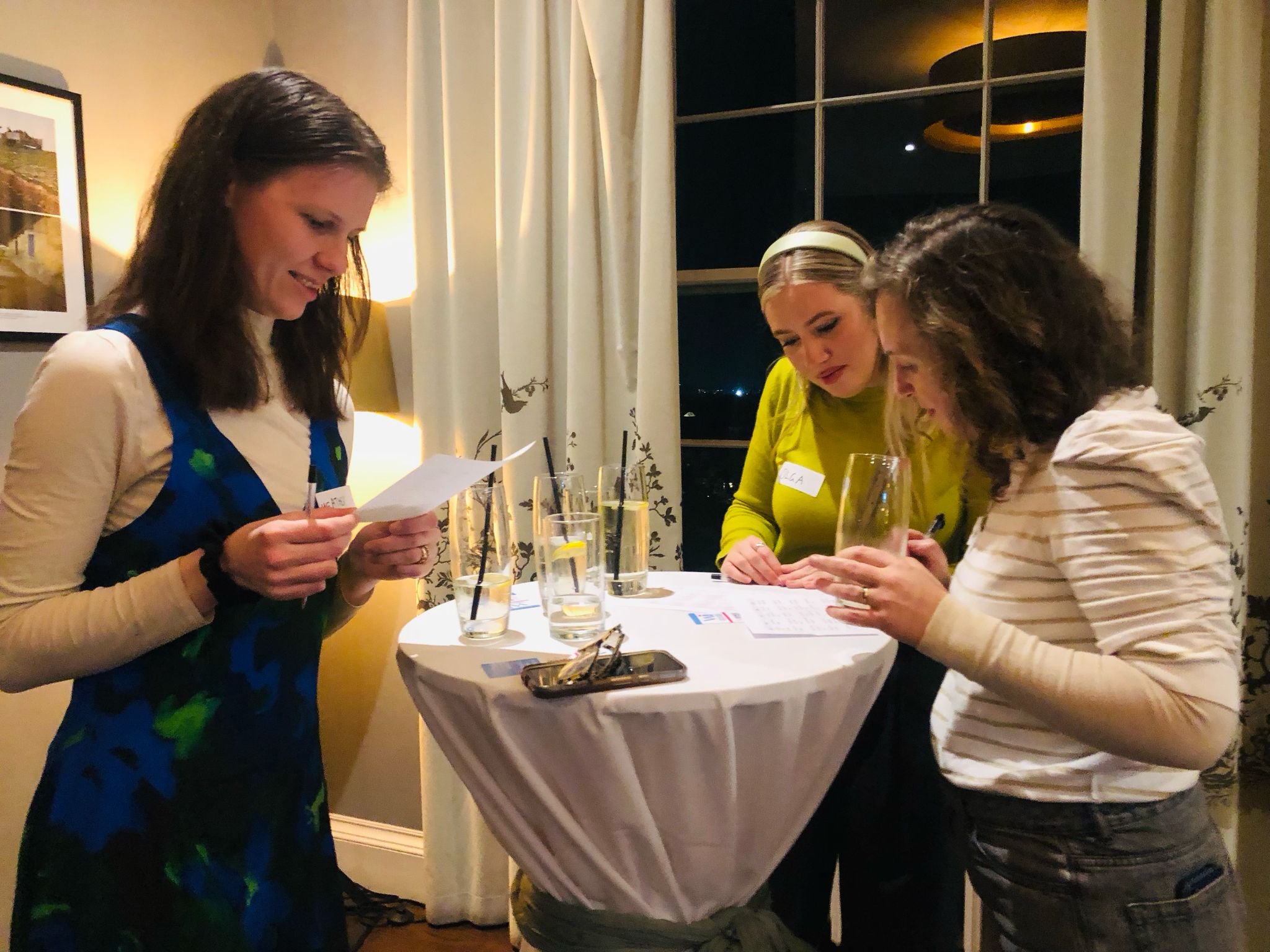
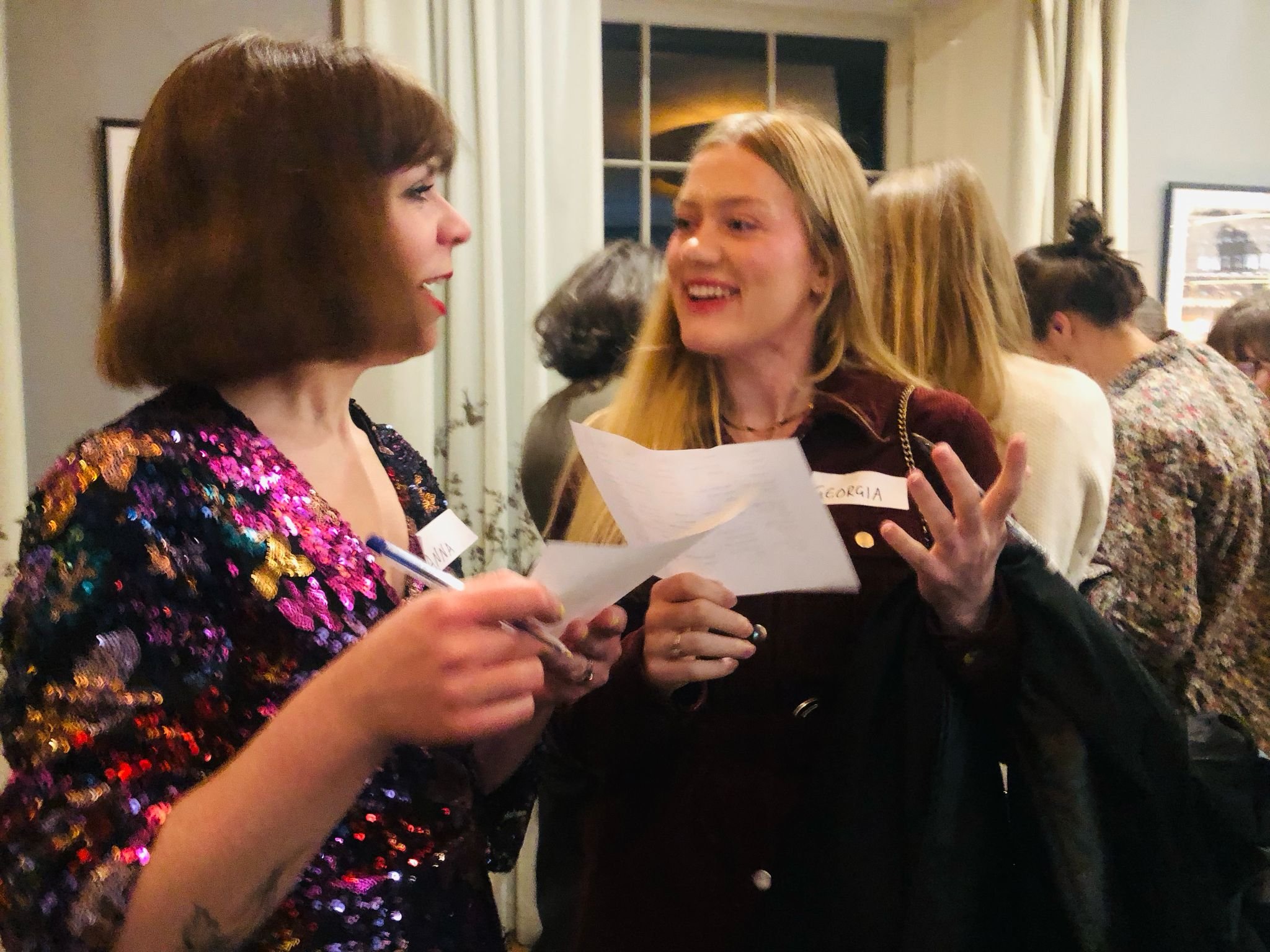
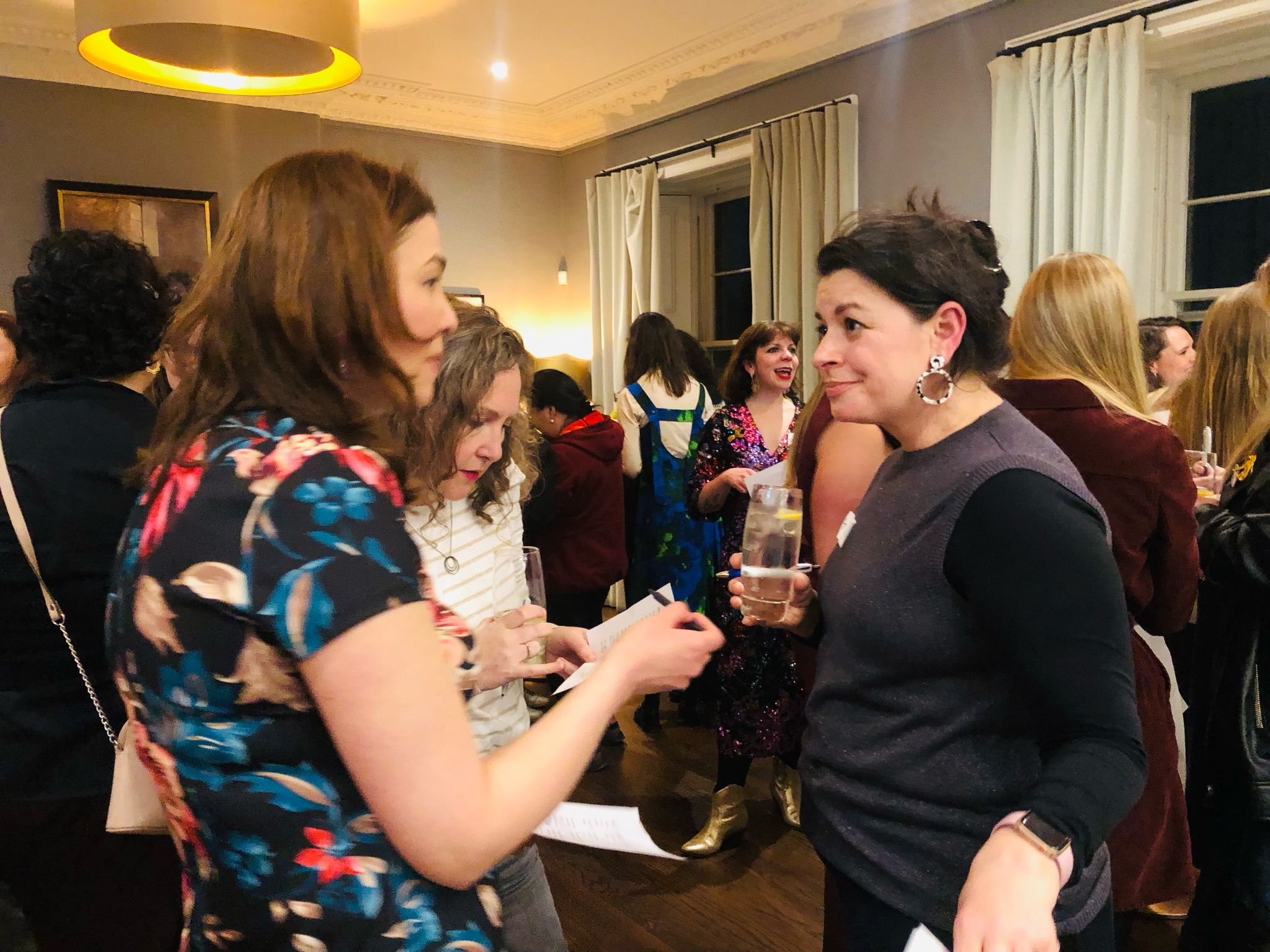
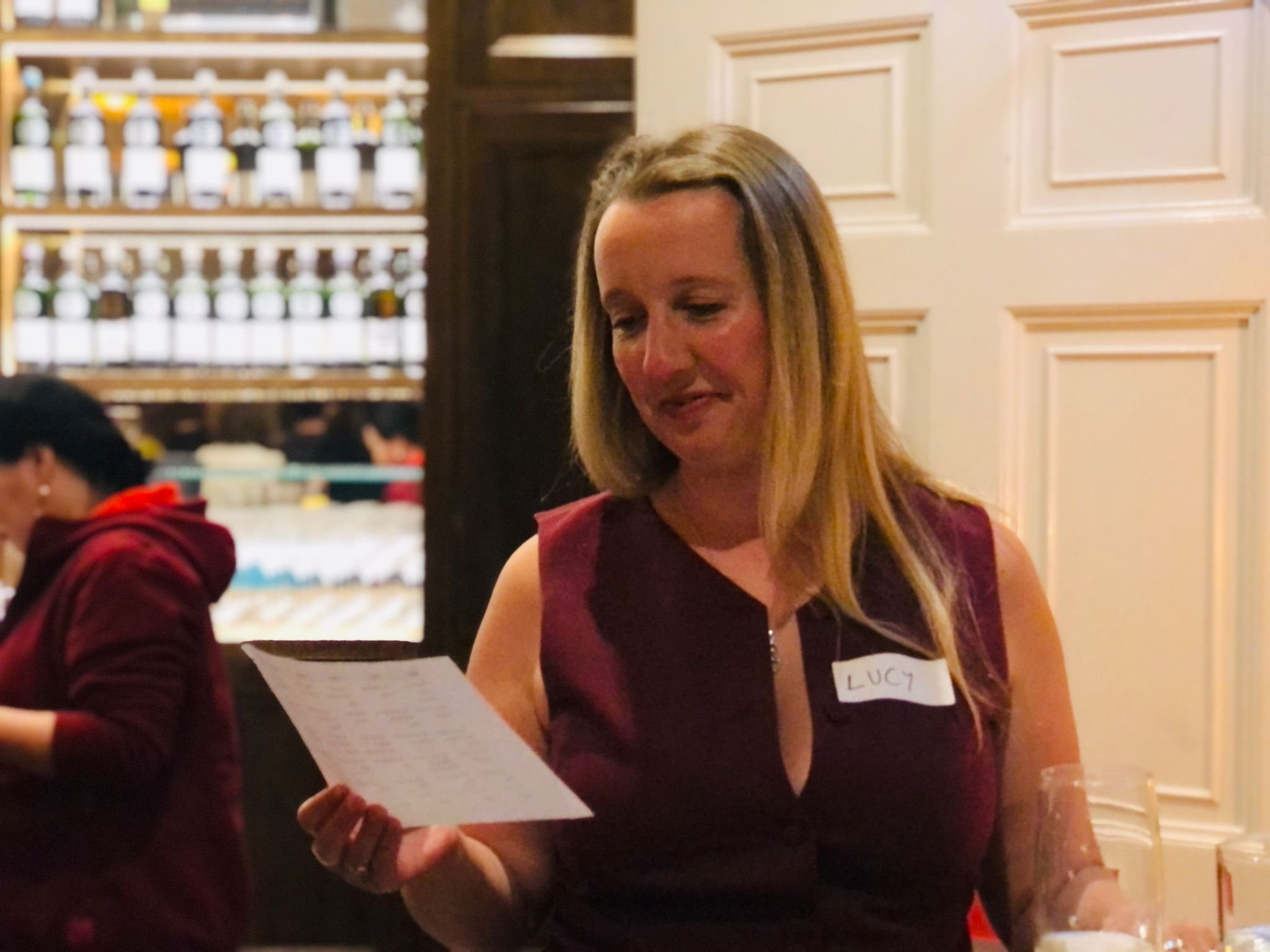
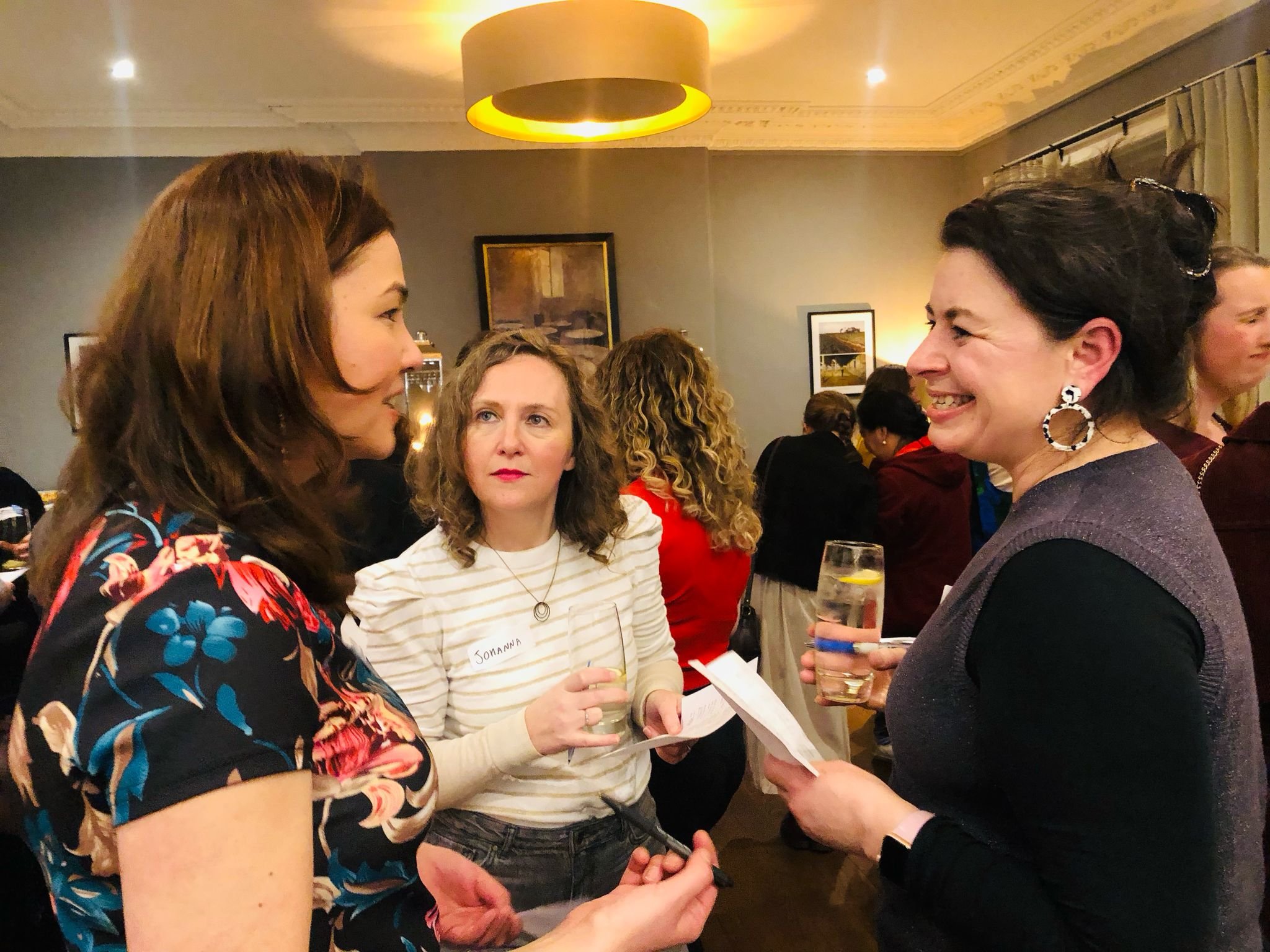
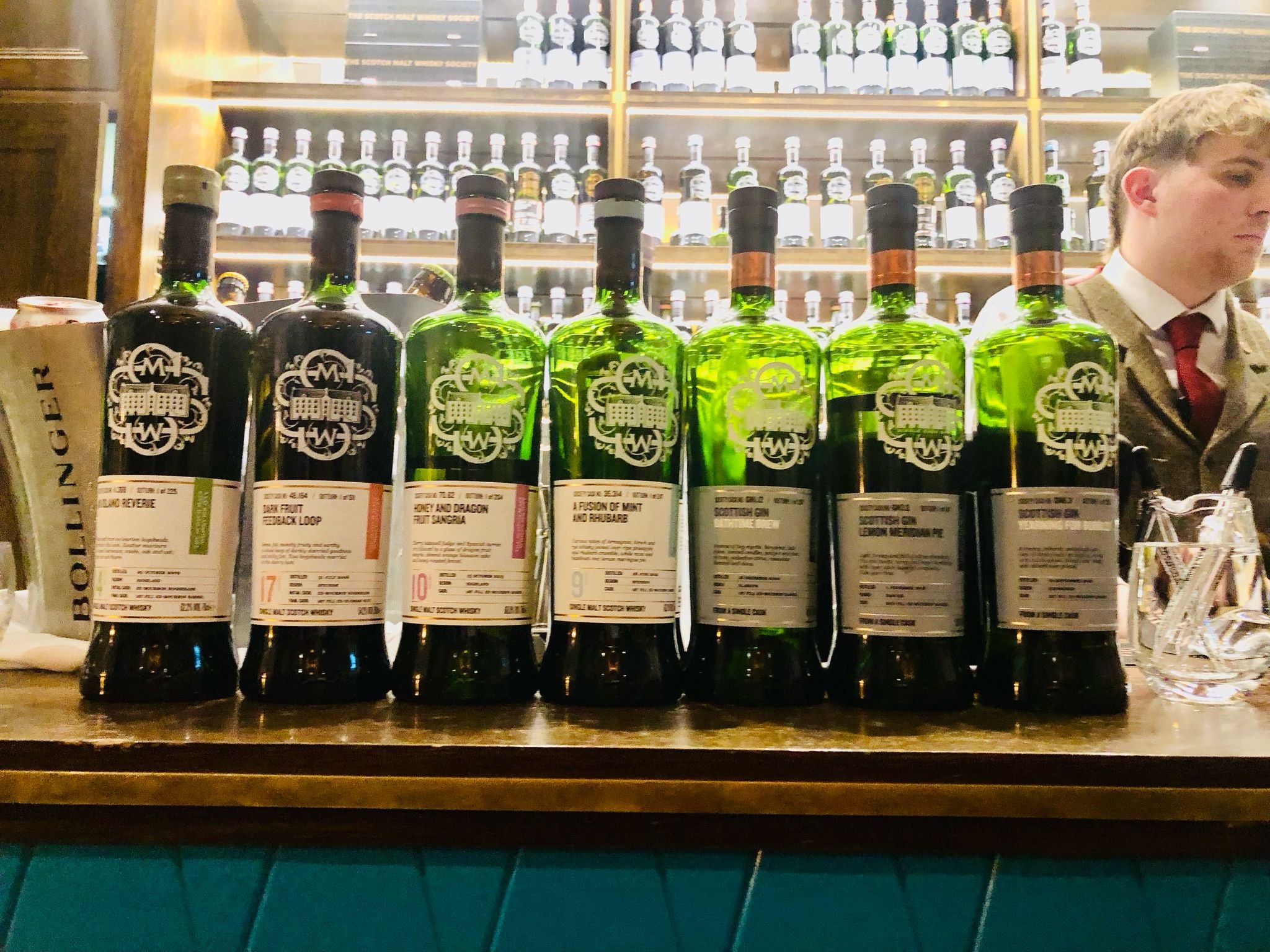
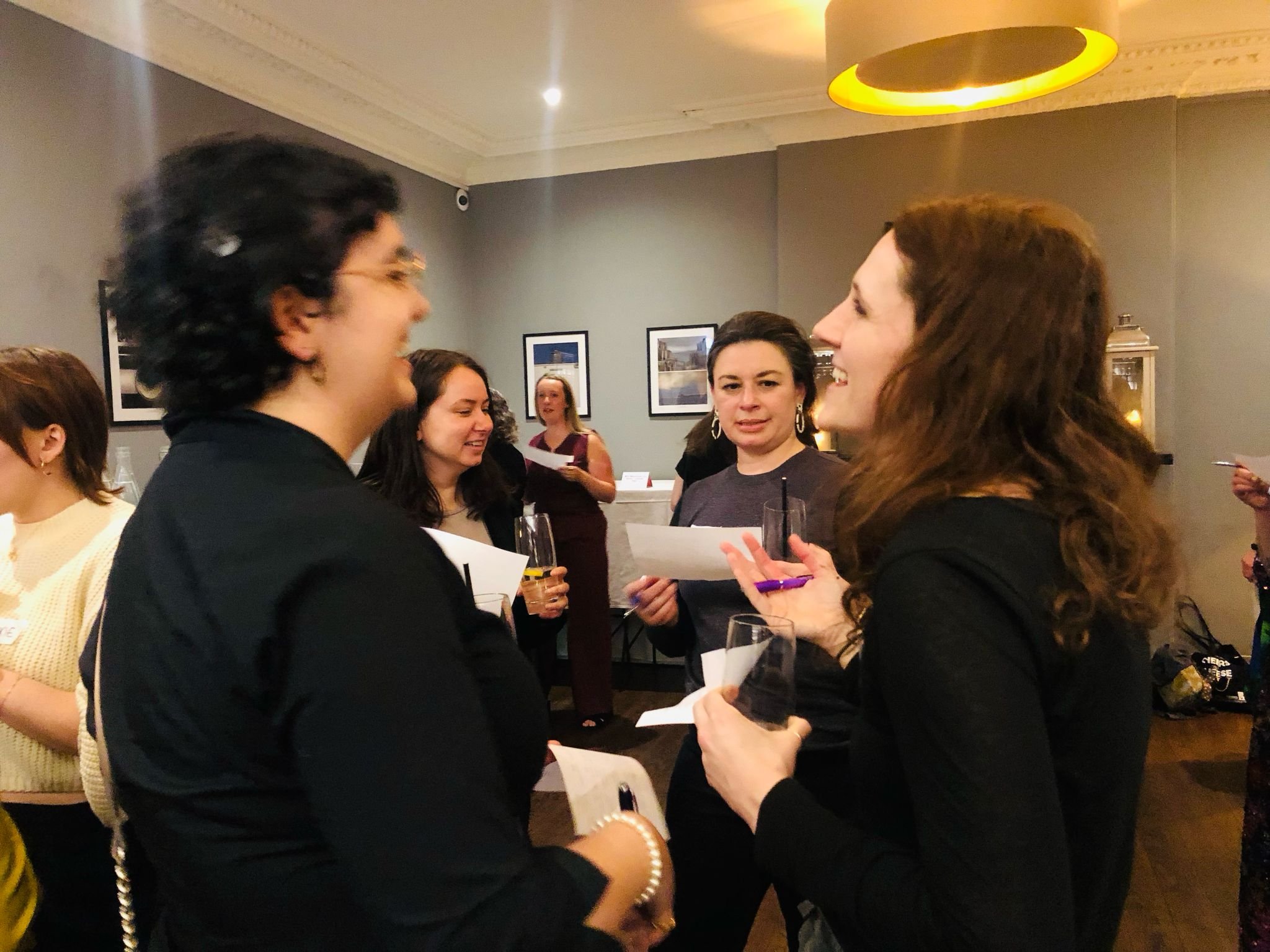
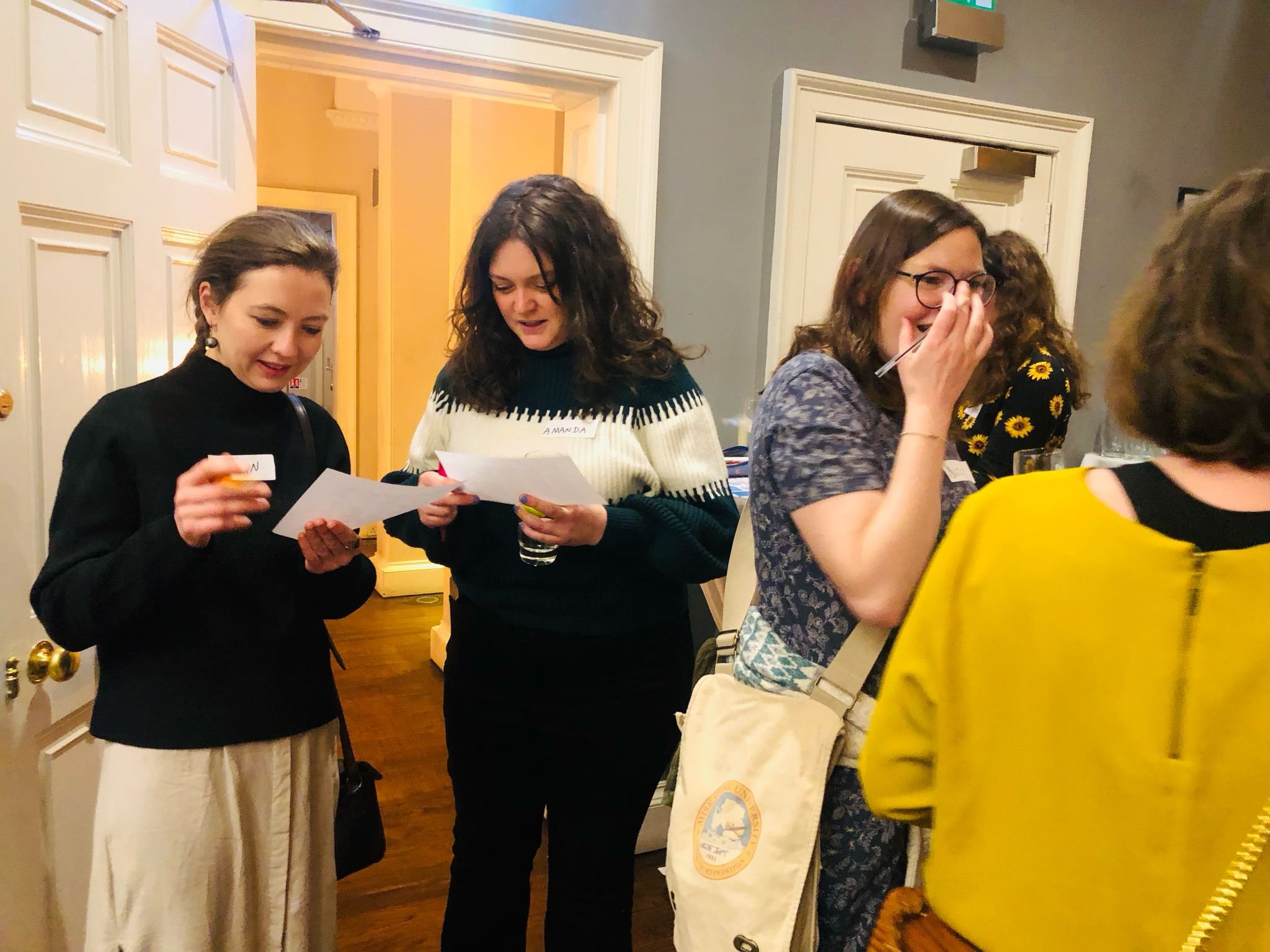
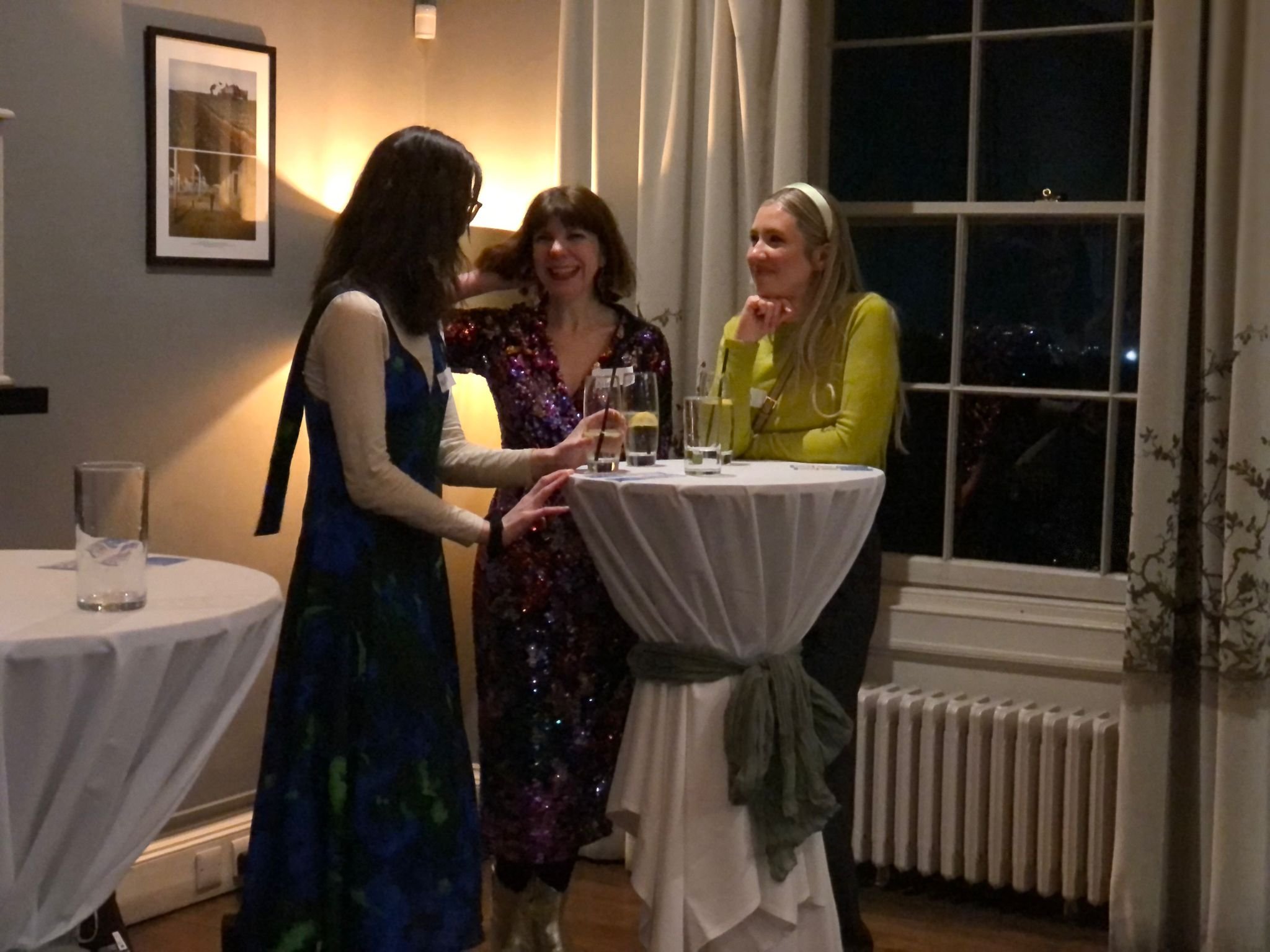
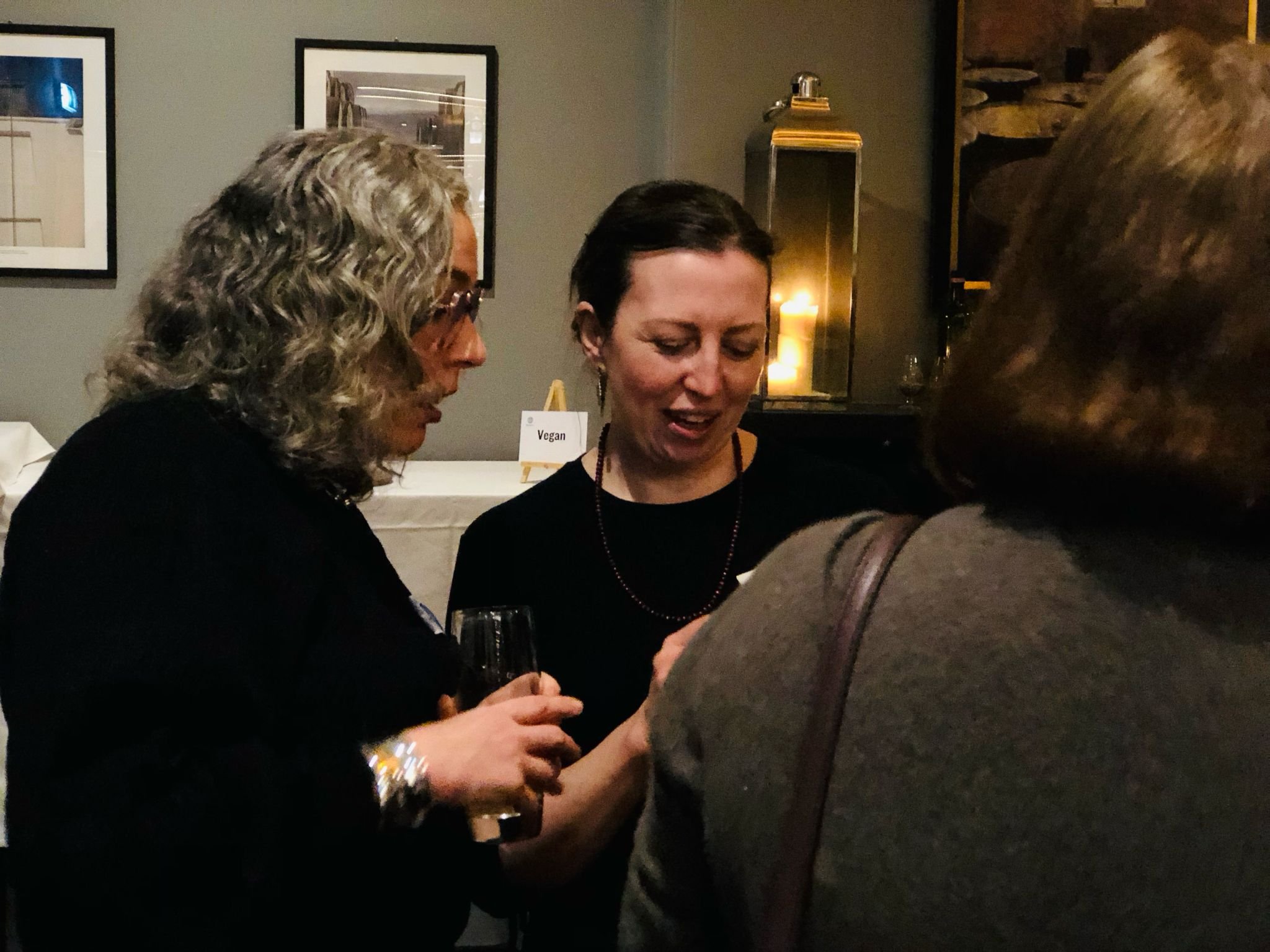
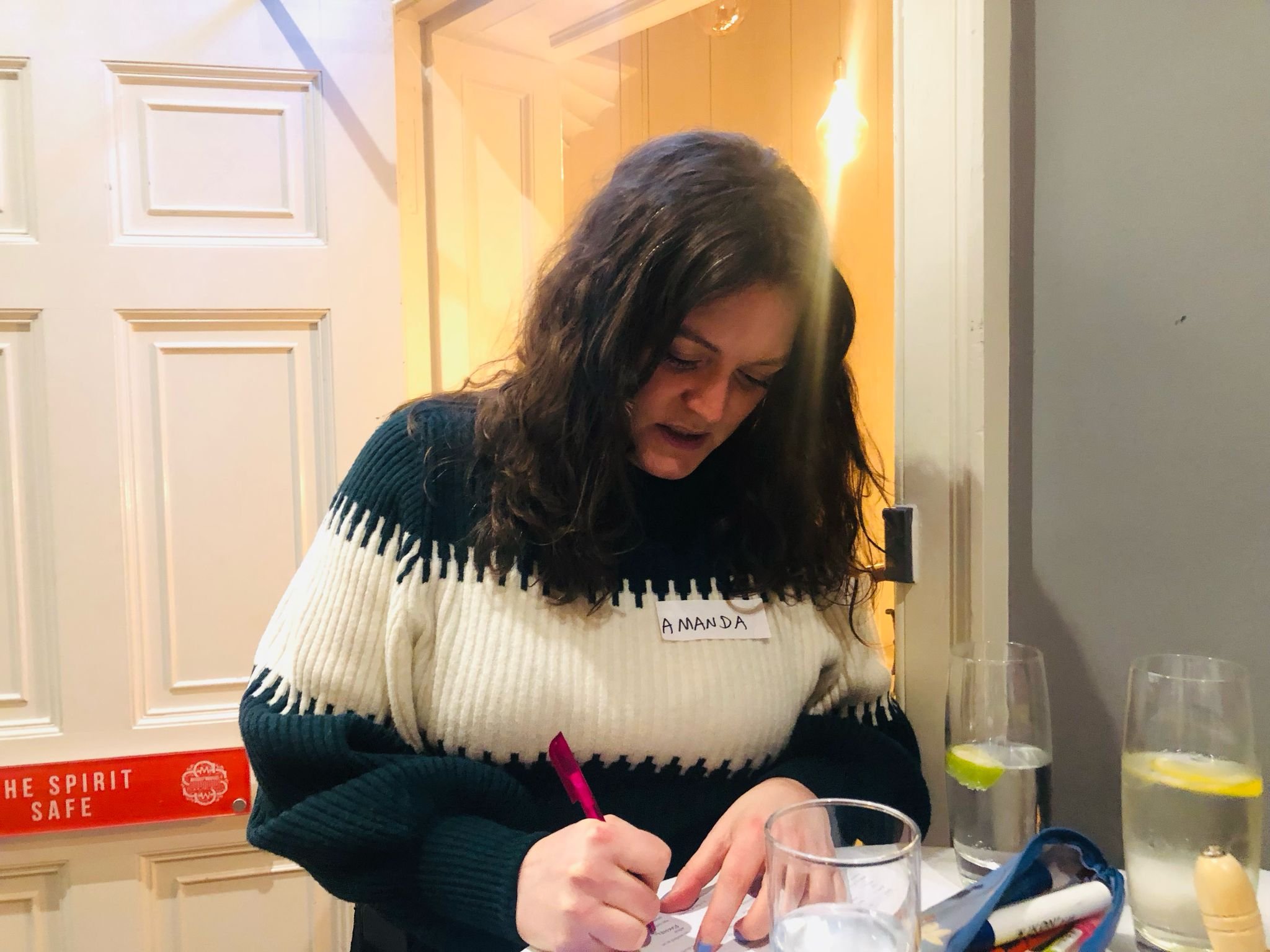
Attendees at the Glasgow winter social
It was wonderful to see everyone who made it along to our winter socials in Glasgow and Inverness.
Thanks to our host venues Table Twenty Eight, Glasgow and Rebel Row, Inverness.
At our Glasgow event, we also raised funds for our organisation with a raffle. Thanks to all who entered the draw and all who donated prizes. This money will help us fund future events and campaigns.
Attendees at the Inverness winter social
On the same night WiJ Scotland gathered in Glasgow for a glitteringly gallus winter social, further north, in Inverness, a group of women met at the appropriately named Rebel Row, to network and set the world to rights. Rebel Row (a play on Savile Row) is the retail outlet of the Highland’s only tartan weaving mill, Prickly Thistle.
The backdrop of cool couture, made using tartan woven at Prickly Thistle’s mill near Evanton on the Black Isle, was perfect. Around 20 Highland women in the media attended and enjoyed an evening of networking and discussions about the issues faced by our industry to meet each other and talk about issues faced by our industry.
The event was organised by former WiJ Scotland co-chair, Jan Patience, now living in the Highlands. The Inverness Winter Social followed on from an event in the summer for women in journalism in the Inverness area at which a desire for more of the same was expressed by all who attended.
Jan has set up a WhatsApp group for women in journalism in the Highlands. Get in touch with wijscotland@gmail.com if you’d like to be added to it. We are open to suggestions for more events so let us know if you have any ideas.
Women in Journalism Scotland has launched the fifth round of its successful mentoring scheme.
Are you an early to mid-career journalist in Scotland looking to develop your practice?
Do you have specific goals you want to reach or challenges you’d like to overcome?
Women in Journalism Scotland can help.
Our mentoring scheme has supported more than 100 women journalists of all ages and backgrounds to date, from beats as diverse as politics and investigations to travel, food and drink, arts, health, sport, local news, digital, data, opinion and tech.
Our mentors have helped their mentees bag bylines in publications such as The New York Times and The Guardian, as well as build contacts and grow in confidence.
The 2025 programme will draw on the knowledge and experience of a pool of experienced women journalist mentors. Successful applicants will be paired with a journalist mentor based on their specialism / goals.
Mentees will receive:
Twelve career development sessions
An introductory online workshop guiding them through what to expect from the mentoring year
A mentoring meet-up at BBC Scotland HQ with wine and snacks, where they will get to know other mentees and mentors and network with BBC Scotland journalists
Invitations to events hosted throughout the year by Women in Journalism Scotland
Our mentors for 2025 include:
Laura Kuenssberg, presenter of BBC One’s flagship interview show
Louise Gray, award-winning food and environment journalist / author
Jean Johansson, presenter of Channel 4’s A Place in the Sun
Heather Dewar, sports journalist / columnist at the Scottish Daily Mail
Laura Boyd, entertainment reporter for STV News and What’s On Scotland
Kirsty Wark, presenter at BBC Scotland / BBC One
Gabriella Bennett, head of mentoring at Women in Journalism Scotland, said: “This is an invaluable opportunity for up-and-coming women journalists to have their careers shaped by some of the best in the business..
“We urge applicants to have clearly defined goals in mind when they apply”.
How to apply
To apply to have your media career shaped by this opportunity, fill in the below application form by December 18 2024.
This year we are also asking applicants to submit a short plan detailing what they would like to achieve with a mentor, including two goals.
Apply here.
FAQ
Who can apply?
Early and mid-career women journalists working in Scotland will be chosen to take part in a year-long programme, which will include an hour a month of their mentor’s time, most likely on Zoom.
WiJ Scotland defines an early to mid-career journalist as someone who feels they still have space to grow in their career and has specific goals they feel a mentor could help with. We would particularly urge journalists who have lost confidence or career direction to apply.
Boosting the number of women of colour journalists and women sports journalists in Scotland is one of our goals. Therefore, while the mentoring scheme is not generally open to student journalists, it is open to women of colour student journalists and students who want to be sports journalists.
Applicants must be a member of Women in Journalism Scotland. If you are not yet a member of Women in Journalism Scotland, join here.
What successful applicants will receive
A year’s mentoring with an established women journalist with sessions conducted either in person or on Zoom
An invite to an introductory mentoring workshop and an in-person mentoring social at BBC Scotland’s HQ
The chance to connect with other mentees on the scheme through via Discord or WhatsApp
Career development, opportunities and guidance from Women in Journalism Scotland
Why mentoring?
We believe mentoring has the ability to change the future of journalism. That future features a more confident, diverse workforce, a greater prevalence of women’s voices and more women in senior positions.
How is the mentoring scheme judged?
Applicants will be selected by a panel led by the WiJ Scotland committee.
The panel will study all the answers to the questions posed in each application and base its final decision on the journalists proving how much they would benefit from the programme. An additional factor will be which applicant best fits the skills and experience of the mentors.
When will I hear back?
We aim to contact all applicants by late December. Unsuccessful applicants will be provided with feedback.
WIJ Scotland’s Anna Burnside (second right) and Catriona Stewart (right) took part in a panel discussion at the Women in Media Belfast summit.
Pictures: Connor McKernan, courtesy of QUB and Women in Media Belfast
Women in Journalism Scotland was on tour last week as co-chair Anna Burnside and vice-chair Catriona Stewart joined Women in Media Belfast for the organisation’s inspiring Partnership Summit.
The themes of the Northern Ireland event were connection, collaboration and empowerment - and the mixture of expert panels and guest speakers in Queen’s University Belfast’s Great Hall certainly met the brief.
Anna and Catriona, alongside PA’s Westminster reporter Claudia Savage, were interviewed by the BBC’s Claire Graham for a panel on the future of media, which became a wide-ranging discussion about the threat of AI to journalists’ jobs, working from home, equal pay, the Twitter/X mob, and whether TikTok is still for the youth.
Attendee Kate Jackson, who is a digital media assistant at Volunteer Now, posted about the event on LinkedIn, giving her key takeaways from a day that looked at the “unique challenges and contributions” of women in the media industry.
She wrote: “The Future of Media panel discussed the evolving landscape of audience connection, highlighting that TikTok isn't just for a “young” audience anymore—everyone’s there.
“Catriona Stewart challenged us to consider whether reporters should embrace their roles as visible personalities. A reminder that the industry is evolving, and so should we.”
The day had begun with a powerful contribution from a panel hosted by Susan McKay, Ireland’s Press Ombudsman. A journalist with a prolific background, Susan asked Jilly Beattie, outgoing features editor for The Mirror in Ireland, about ethical journalism. They were joined by Joanne Dorrian, a missing persons advocate of the Let’s Find Lisa Dorrian campaign.
Lisa went missing in February 2005 and her family had to rapidly learn how to both deal with unwelcome media intrusion and use the press to their advantage in trying to bring Lisa home. Joanne spoke movingly of the family’s struggle while Jilly described building a bridge with the Dorrians after a distressing headline ran in The Mirror.
It was a masterclass of using compassion as a vital tool in ethical journalism, rather than seeing empathy and care as weaknesses.
Barbara McCann - an unstoppable powerhouse of a woman - received the longest round of applause from her speech on overcoming imposter syndrome and fighting to be taken seriously in the industry. She was utterly inspirational.
As well as panels covering women in sport reporting and in fashion journalism, other speakers included QUB Professor Gabriela Matthews, who spoke powerfully on the role of journalism in war zones. Aisling Cannon, a Queen’s University student, co-founded QUB’s Walkie Talkie Girlies society and told the conference how she and a friend set up the society last year to tackle women’s fears of walking alone at night.
The society has become a roaring success - bolstered by the power of coverage in the local press - and its Pink Project will see Belfast City Hall lit up in pink to raise awareness about ending violence against women.
It was impossible to listen to the insightful, sharp and powerful stories from the women taking part and not be inspired to keep on pushing for change and progress in the industry, to tell powerful stories in the way only women can and to spend more time in the company of what Anna likes to call “top birds”.
Clockwise from top left: Rebecca Smith; Chlöe Smith; Magdalena Grzymkowska-Chuchra; Nicola Love and Eve Livingston.
Women in Journalism Scotland (WiJS) and the Joseph Rowntree Foundation have announced the recipients of the 2024 WiJS x JRF bursary programme.
Five women journalists have been chosen by a panel of judges to receive £1,500 to develop a project shining a light on economic and / or social inequalities around Scotland.
The funding will support the successful applicants over the remainder of 2024 as they work up their projects from an idea stage to a developed pitch ready to be taken to a publication, or launched independently, by the end of the year.
The successful journalists are: Rebecca Smith, Chlöe Smith, Nicola Love, Eve Livingston and Magdalena Grzymkowska-Chuchra.
Rebecca will be working on her second non-fiction book proposal focussing on the loss of forest culture and how important timber is to society, past, present and future.
Chlöe’s project will investigate migrant destitution, with a focus on the experience of undocumented migrants in Scotland.
Nicola is focussing on how seriously Scotland is taking women's reproductive health rights, with a wider look at how the cost of living crisis has affected family planning.
Eve aims to build on her previous reporting of Glasgow city council’s women’s strike and subsequent equal pay actions.
Magdalena’s investigation will focus on migrant women who have recently given birth in Scotland and the financial struggle, social isolation and intersectional discrimination they face
Part of the bursary programme involves working with an established woman journalist who will provide support for each applicant’s project.
Providing mentoring for the programme this year will be Cal Flyn, Judith Duffy, Pennie Taylor, Shona Gossip and Nicki McCourt.
This opportunity was aimed at early to mid-career freelance women journalists who believe they still have room to grow in their careers. Applicants must also have experienced economic inequality at some stage in their lives.
Anna Burnside, co chair of Women in Journalism Scotland, said: “We are so excited to support this amazing range of women as they pursue original, in depth journalism. I can’t wait to see what they all produce.”
Chris Birt, director at the JRF, said: “It’s fantastic to see this second year of the bursary taking off with another group of talented women journalists. It will be fascinating to see how they bring their skills and work with their mentors to deliver on such a fascinating mix of important issues. It is a crucial time to have high quality journalism from diverse voices and we are glad to support this project.”
Georgia Edkins, 29, began her journalism career as a trainee on the Daily Mail graduate scheme in London. Following a secondment to Scotland, where she worked at the Mail on Sunday, she moved back to London to take up the position of Whitehall Correspondent.
In January 2023 she returned to Scotland, becoming Scottish Political Editor at the Mail on Sunday, where she brought in a series of high-profile scoops and splashes. She won four awards at this week’s Scottish Press Awards: Political Journalist of the Year, Scoop of the Year, Reporter of the Year and the highly coveted Journalist of the Year.
In a Q&A, Georgia tells us about her big wins, imposter syndrome, campervans and spaniels.
Picture credit: Andy Barr
How was 2023 for you work-wise?
It was very busy. When I first moved up it was quite clear that the SNP were starting to factionalise. That wasn't too obvious from the outside: I did a story about SNP MSPs who had gathered in an Edinburgh restaurant and started to discuss whether Nicola Sturgeon was the right person to lead the party. Those voices were starting to get stronger, so it was an amazing time to be in Scotland, as the iron-fisted rule of the SNP began to unravel. I felt grateful to be part of it and I have always felt as if Scotland is home - my granny is from Aberdeen.
The SNP investigation started to heat up and the campervan story was part of that. Although we don’t know the outcome of that investigation it felt like a seismic time in Scottish politics.
Personally, however, it was a really difficult year. I was in hospital for two months with a health issue. I was able to win these awards because of my colleagues supporting me to work at the rate I was. I am learning every day from those colleagues. I suffer quite a lot from imposter syndrome. I'm surrounded by incredible journalists in the lobby, some of the best in the country and the UK. There’s a funny feeling where you think: “Do I deserve this?”, but you have to take the wins as they come.
Tell us how your SNP campervan scoop came to be?
There had been rumours swirling for some time in Holyrood that a vehicle might have been part of the police investigation. I put my reporter hat on: I’m political editor but I love getting out and about. I don’t spend my time in the lobby and press gallery - I prefer to be a proper reporter on the ground. It was old school door knocking until I got what I needed. It is a good lesson for young journalists coming up - social media can be a great source of stories but we write for human beings and we depend on speaking to human beings.
How did you feel the day before the story broke?
I didn’t know the story would be that big. We treated it as we would any other story, with the same attention and care. It was only when the front pages went out at about 10pm that there was an instant response on social media and the comparison with Breaking Bad. It was when it became memeified that I realised it had penetrated the public consciousness. I am probably quite a boring journalist in that I don’t chase the buzz, I chase the story.
What are the ingredients of a good story?
Number one it has to have human interest. People have to understand it and it must be about people. With politics it can be easy to stray into the granular detail of process and policy. That has its place, but I set myself the task of asking what impact will that policy have on readers, and how can I translate that?
One of the mistakes the SNP has made with the Michael Matheson [iPad bill scandal] story is that they say it is a bubble story [that only journalists care about]. But hard-working people know if they had taken £11,000 from their employer there would be deep consequences. Knowing Michael Matheson would get away with it riles people up and creates a divide between politicians and the public. It is unjust. So the story has to resonate with real people.
In terms of what ingredients make good journalism more generally, then working against injustice. Recently I have been working with a colleague in London on an autism campaign. It is Victorian that autistic people are locked away and are not part of the community because [local authorities] don't have the funds. I have a relative with autism: the idea that they would be in an institution is abhorrent. Take away the job title and I am Georgia who has friends and family. I am not writing for me, I am writing for readers, but of course you are influenced by your own experiences in life.
Finally, my former news editor Andy Beavan used to say that as long as a story has humans or animals then we’re fine. In the first piece I had published aged 21 I managed to get spaniels and genocide in the intro. He said that was the perfect recipe.
How do you wind down from breaking a big story?
I do a lot of meditation. And I spend time with friends who are supportive and have nothing to do with journalism!
How do you build contacts?
I don’t have any fear in that regard - I will ask to meet contacts for coffee or lunch. That can be a big hurdle for some journalists but if you don’t ask you don’t get. Some days you might be rejected but then you might get a contact for life. I make sure [my relationship with contacts] is not wholly transactional. I really care about them and their lives and hopefully they care about mine. I understand if something goes wrong - the number of people I’ve spoken to who support independence, for instance, and I say I’m sorry this is happening and I know it’s not great for you. I try my best to be as open and kind as possible. It is just as important to nurture contacts and it is to get them.
After a story has gone it takes seconds to message someone to thank them for their time. As journalists we are nothing without our sources and the people who trust us to investigate what they think is important.
What advice would you give young journalists looking to get into the industry?
Whatever the universities say, learn shorthand! I use it every day. Learn how to drive - I know there's a financial pressure there, but a number of newspapers require it. Social media is a treasure trove but our role as journalists has slightly shifted over time to be fact checkers, so it is our job to ensure what we write is correct and true. You need to stand everything up.
Don’t neglect speaking to real people. Some of my best stories have come in that way. The industry has changed - turnaround time is now tighter - but if you take the time to speak to someone and engage with them properly then stories will come naturally. Have faith: if you know something is a really good story but you’ve got 10 more stories to turn around that day then politely ask your editor if you can take some time to work on the good one. Those big stories that need more time are so important - and they're everywhere - but we need the time to approach them. I think any editor would be impressed by someone asking to take time for a real story.
Know yourself and what your values are and keep checking in with yourself. Our industry is fast paced, exciting and exhilarating, but make sure you put in the time to nurture yourself.

